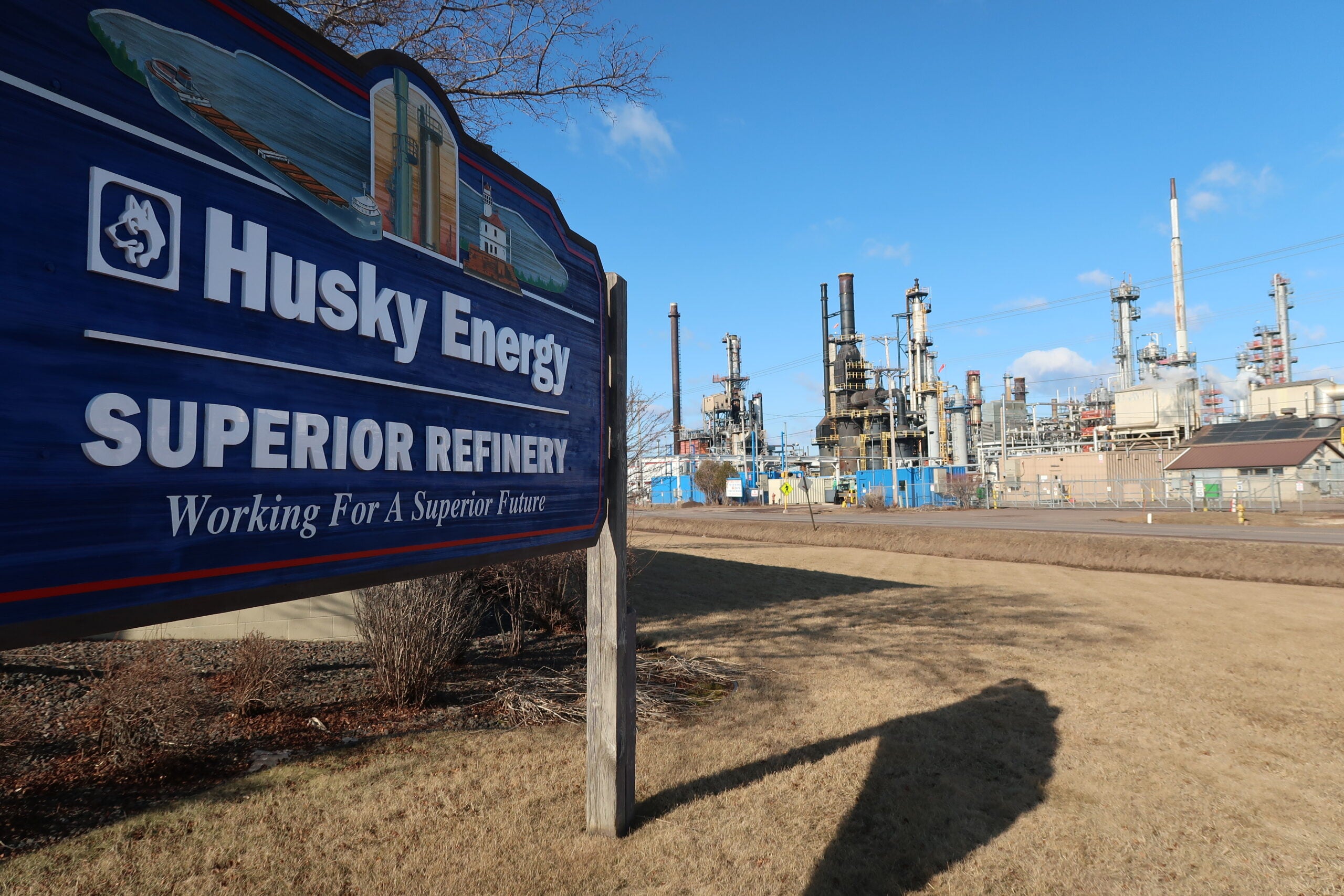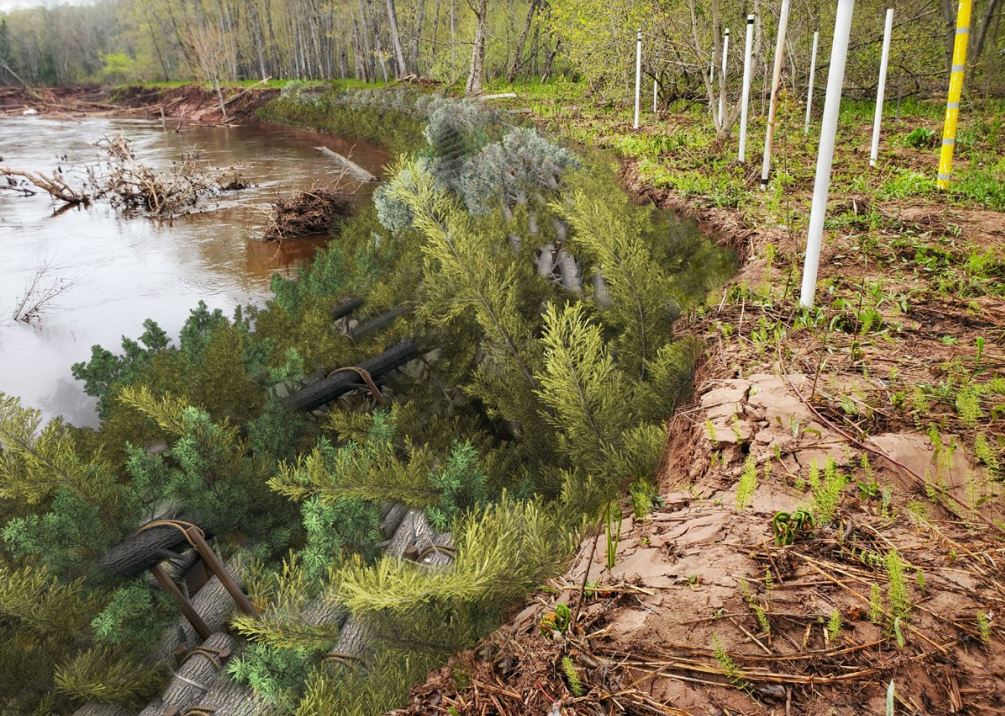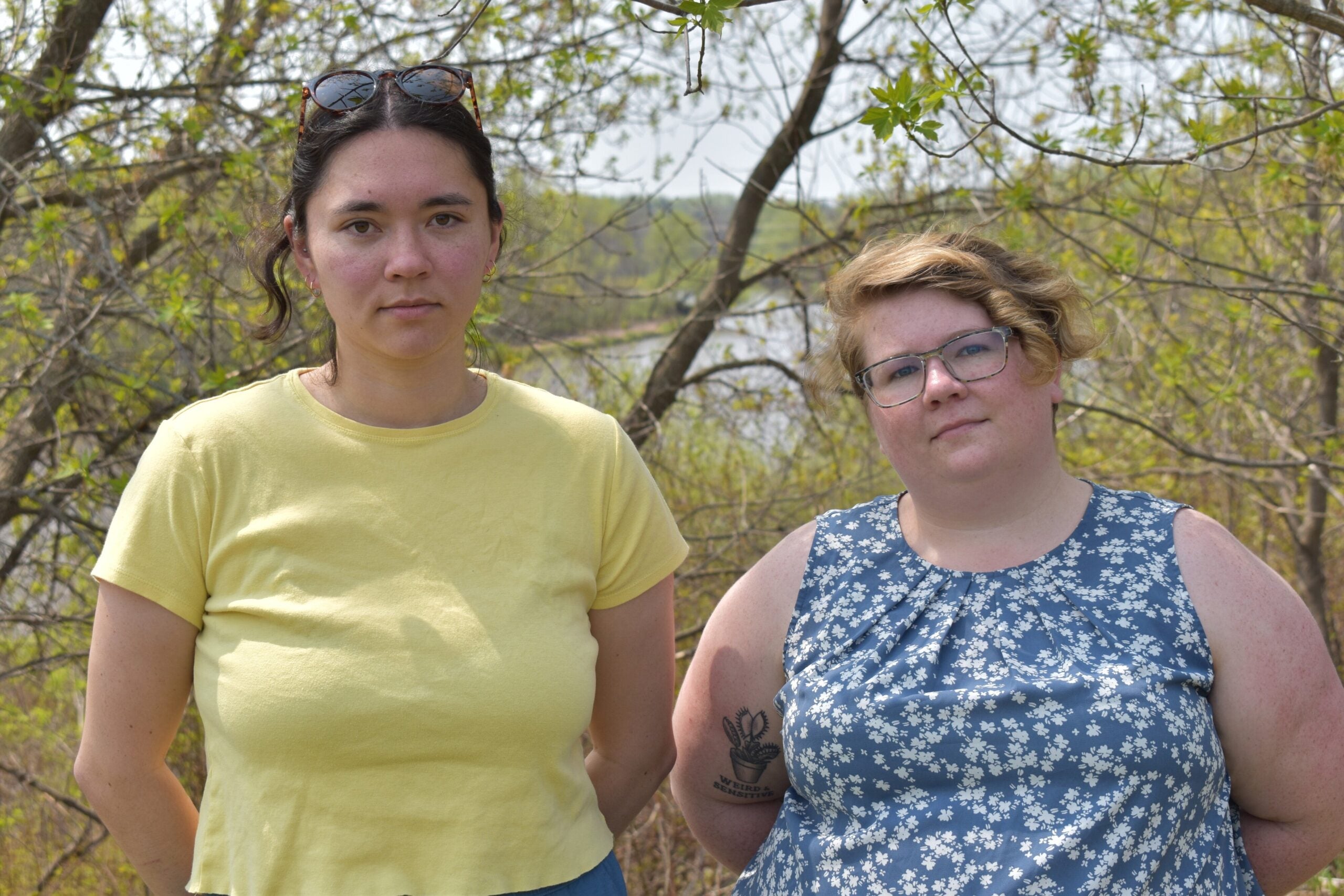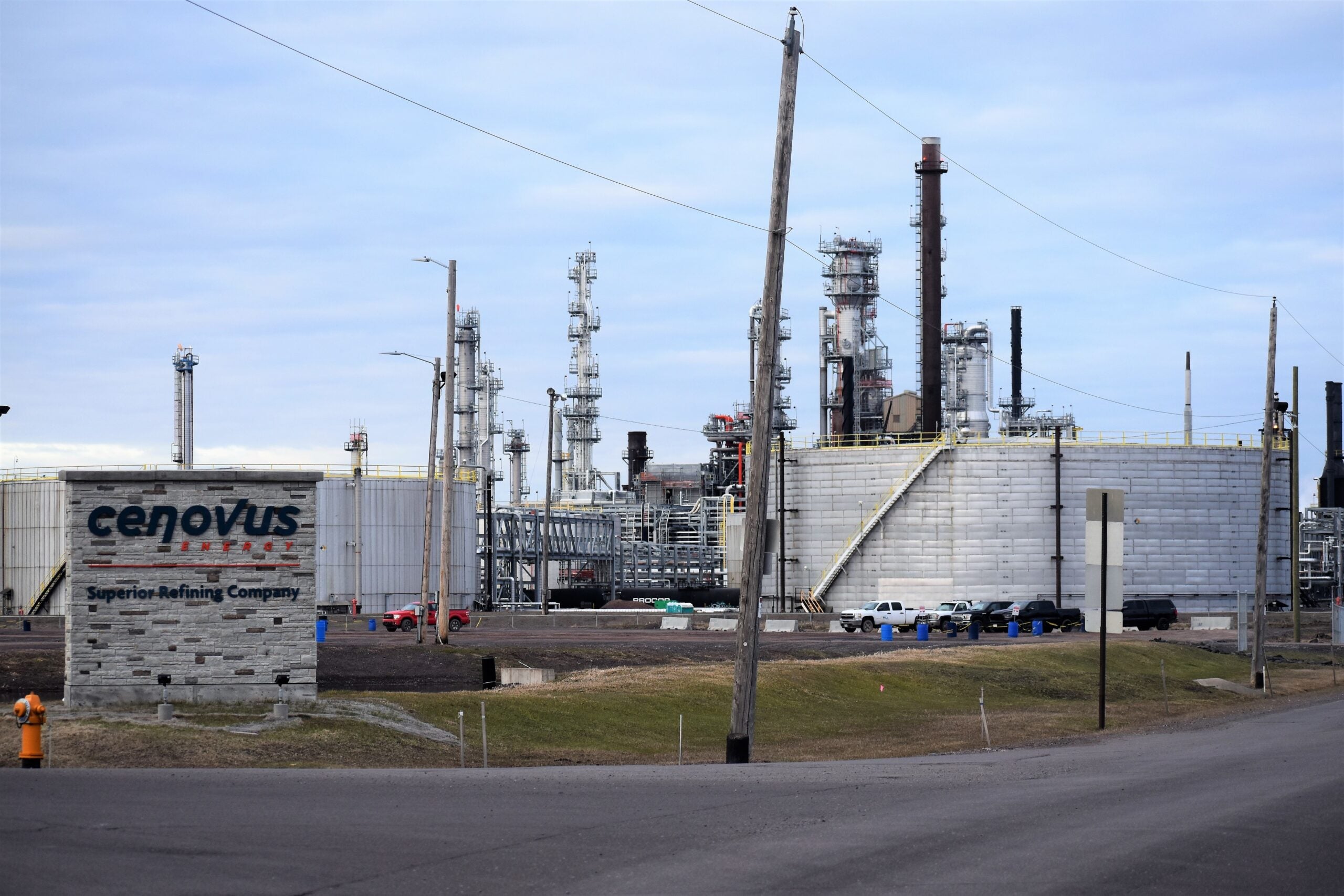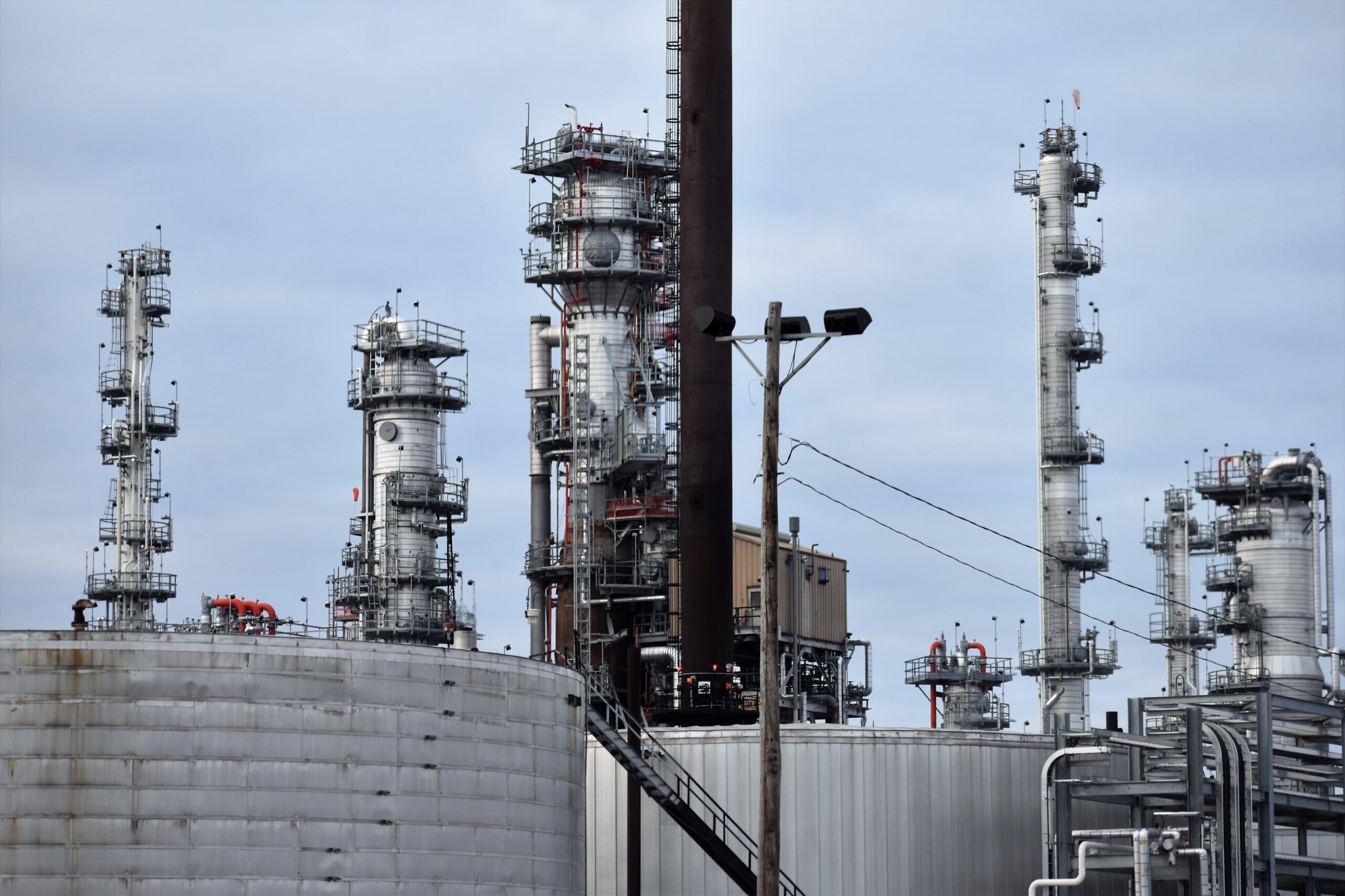Canadian oil and gas company Cenovus Energy has closed on its nearly $5 billion deal to buy Calgary-based Husky Energy, the company that owns and operates Wisconsin’s only oil refinery.
The $4.78 billion deal makes the combined company the second-largest Canadian-based refiner and third-largest oil and gas producer there.
The deal was first announced in October after the oil industry has been struggling in light of lower fuel demand due to the coronavirus pandemic. Husky reported around $7 billion in losses through the first nine months of 2020.
Stay informed on the latest news
Sign up for WPR’s email newsletter.
“This is an exciting day for Cenovus as we become a leaner, stronger, more fully integrated oil and natural gas company that is exceptionally well-positioned to weather the current environment and be an energy leader in the years ahead,” said Alex Pourbaix, Cenovus CEO and president, in a statement.
Husky will become a subsidiary of Cenovus. Pourbaix said the company will focus on “safely and efficiently” combining assets and employees as they seek to achieve nearly $1 billion in savings.
Reuters has reported Cenovus plans to cut up to 25 percent of its workforce, which could result in the loss of up to 2,150 jobs. A Husky spokesperson confirmed to WPR on Monday that the majority of job losses will take place in Calgary.
Husky typically employs around 200 workers year-round at the Superior refinery and around 350 contractors were expected to work on the rebuild prior to the pandemic.
Close to 400 members of the Northern Wisconsin Building and Trades Council have been working on rebuilding the Superior refinery after an explosion in 2018 damaged the facility, said Kyle Bukovich, the council’s president.
“My main concern (with the Cenovus deal) was, is this going to hinder or slow down the rebuild process? I was told that this should have no effect at all with the rebuild,” said Bukovich.
Husky reduced capital spending on projects in 2020, including the $750 million Superior refinery rebuild. The company had spent nearly $62 million on the project through the end of September.
A faulty valve caused an explosion in April 2018 that injured 36 people and prompted a temporary evacuation of city residents due to the presence of hydrogen fluoride. The chemical, which is used in the refining process, can be extremely hazardous if released.
Mayors in Duluth and Superior, as well as community activists, have called on Husky to eliminate the use of the chemical in its rebuild plans. But, Husky has opted to keep hydrogen fluoride as part of the refinery’s operations, saying other alternatives would not be viable.
The company is including a number of safety improvements as part of the rebuild, scheduled to be complete by 2022. Those include the addition of a rapid acid transfer system that would transfer hydrogen fluoride to a separate holding tank in the event of a release.
An investigation into the explosion by the Chemical Safety Board (CSB) is still ongoing. The CSB has said the investigation is expected to wrap up sometime this winter or spring. The Environmental Protection Agency also launched a civil investigative review following the incident. A Husky spokesperson said Monday they continue to cooperate with both agencies on those investigations.
Husky is also facing lawsuits stemming from the 2018 explosion, including a lawsuit filed last month in Douglas County Circuit Court. The Superior Telegram reported Monday that two workers, Edward Wysocki and Leslie Wood, have filed suit against Superior Refining Company seeking more than $10,000 for medical costs, pain and suffering, wage loss and other damages. Husky does business as Superior Refining Company in Wisconsin.
Litigation is still ongoing in another civil lawsuit filed by workers and a class action lawsuit filed by community members.
Husky acquired the Superior refinery for more than $400 million in a deal with Calumet in 2017. The facility is capable of refining around 45,000 barrels per day.
Editor’s note: This story was updated to include information about ongoing investigations and lawsuits stemming from the Superior refinery explosion.
Wisconsin Public Radio, © Copyright 2025, Board of Regents of the University of Wisconsin System and Wisconsin Educational Communications Board.
